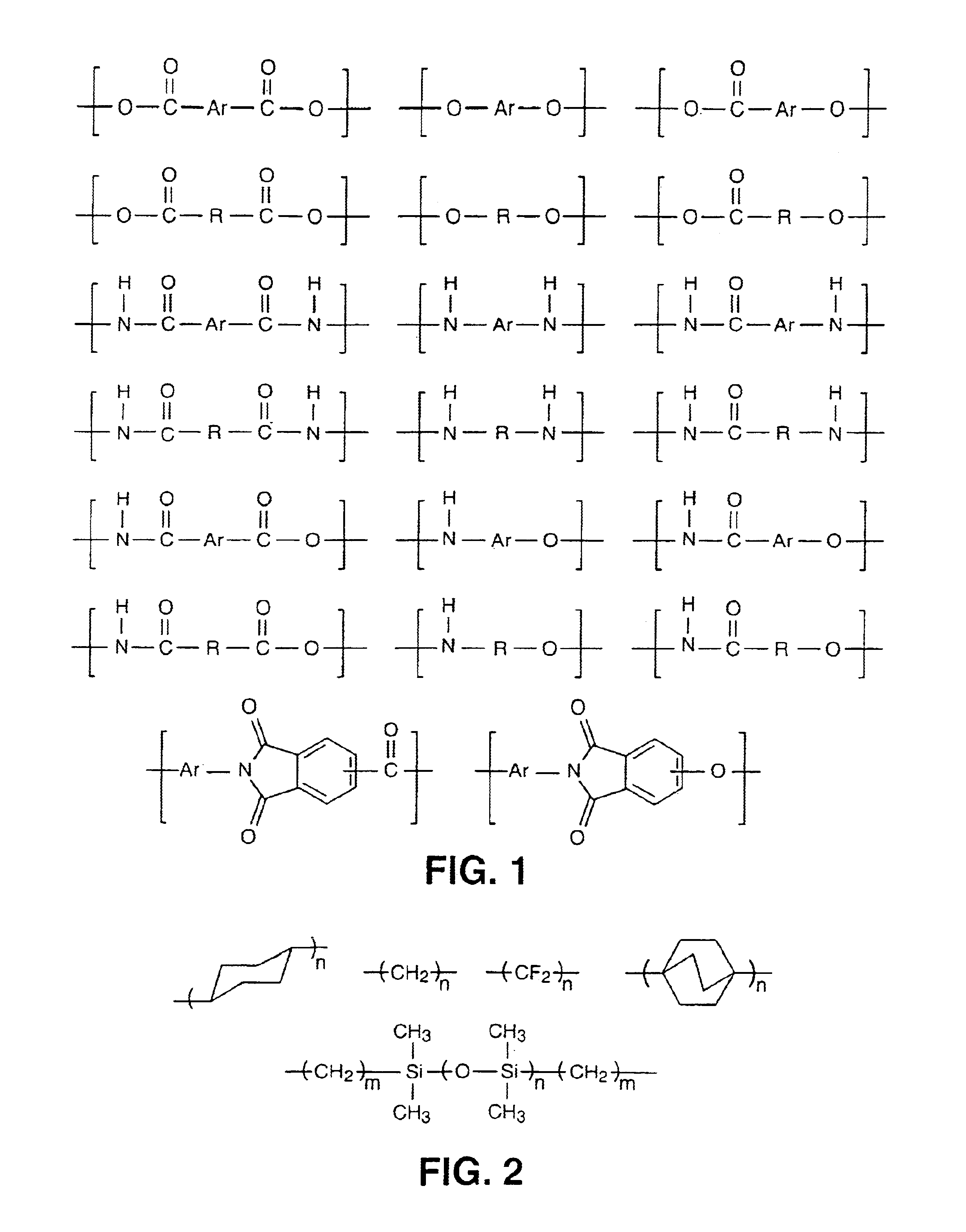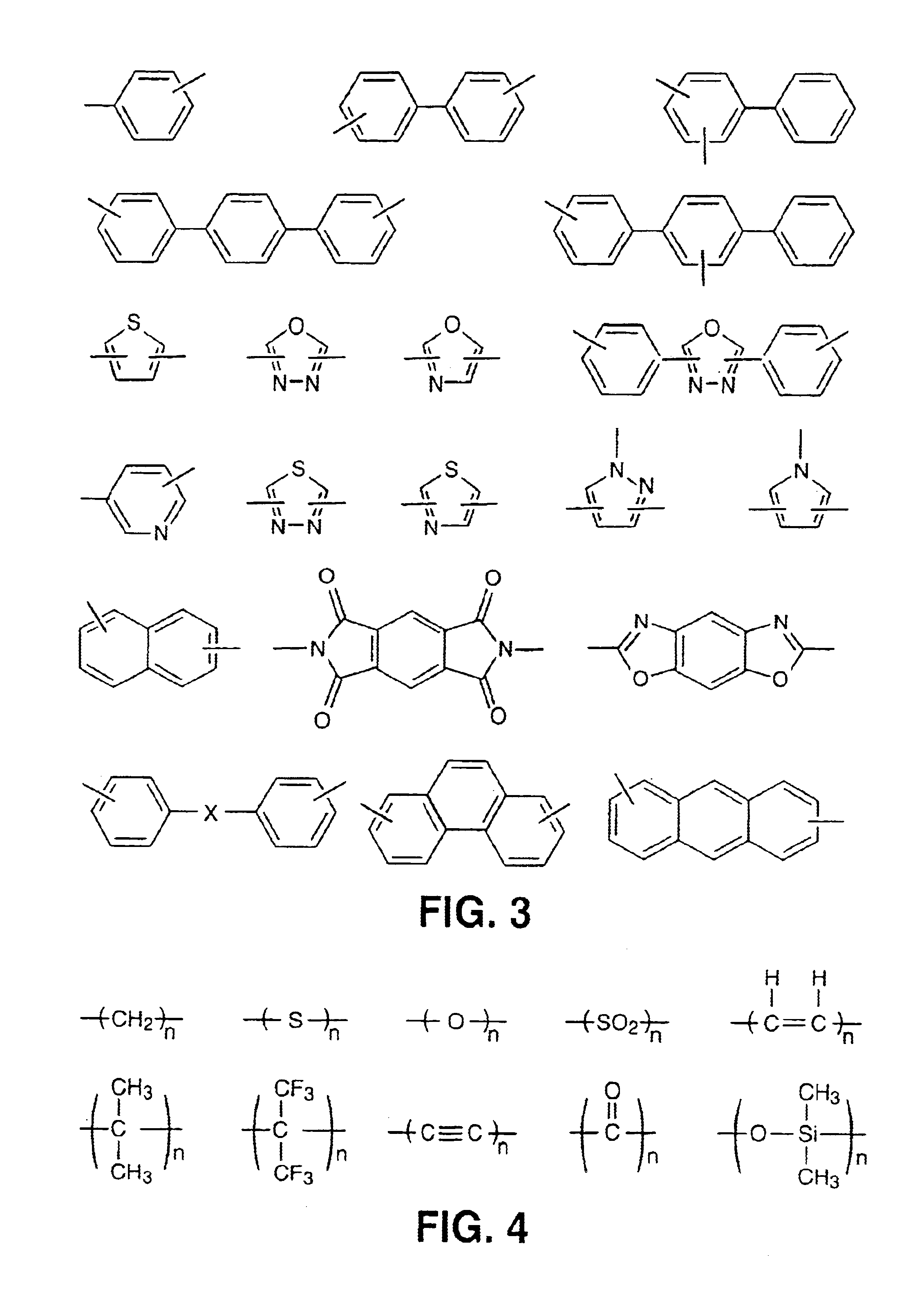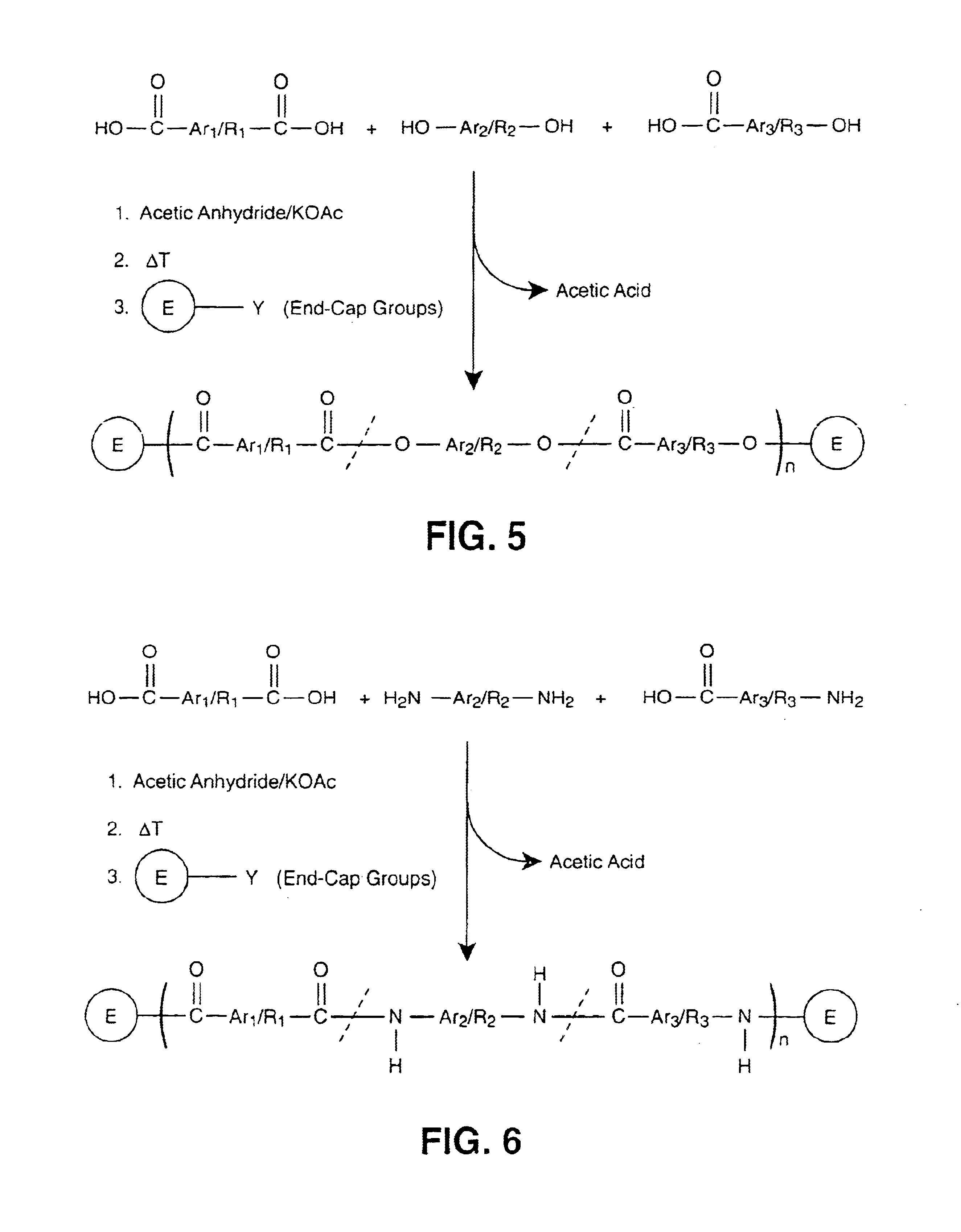Liquid crystalline thermosets from ester, ester-imide, and ester-amide oligomers
a technology of ester-imide and ester-amide, which is applied in the direction of liquid crystal compositions, chemistry apparatus and processes, etc., can solve the problems of undesirable volatiles, difficult melting process of all the above materials, and do not teach using the claimed end-caps with liquid crystal oligomers, etc., to reduce melt flow viscosity
- Summary
- Abstract
- Description
- Claims
- Application Information
AI Technical Summary
Benefits of technology
Problems solved by technology
Method used
Image
Examples
examples
Preparation of Reactive End-Caps
[0041]The following examples illustrate the reaction sequence for the synthesis of the reactive end groups that were used for the preparation of end-capped ester, ester-imide, and ester-amide oligomers.
example a
Phenylacetylene Terminated Carboxylic Acid; PE-COOH
[0042]Into a 250 mL two-neck round bottom flask equipped with a mechanical stirrer, condenser and a nitrogen gas inlet was placed 4-aminobenzoic acid (8.0 g, 58 mmol), 4phenylethynylphthalic-anhydride (14.5 g, 58 mmol) and 150 mL glacial acetic acid. This mixture was stirred at 25° C. for 1 hour after which the temperature was raised to reflux for 12 hours. The reaction mixture was cooled to 25° C. and the precipitated product was collected by filtration, washed twice with hot ethanol and dried under vacuum at 100° C. for 8 hours.
example b
Phenylacetylene Terminated Acetoxy Phenol; PE-OAc
[0043]Into a 250 mL two-neck round bottom flask equipped with a mechanical stirrer, condenser and a nitrogen gas inlet was placed 4-aminophenol (6.3 g, 58 mmol), 4-phenylethynylphthalicanhydride (14.5 g, 58 mmol) and 200 mL glacial acetic acid. This mixture was stirred at 25° C. for 1 hour after which the temperature was raised to reflux for 12 hours. The reaction mixture was cooled to 25° C. and the precipitated product was collected by filtration, washed twice with ethanol and dried under vacuum at 50° C. for 8 hours.
[0044]The dried end-cap products were refluxed in 150 mL acetic anhydride for 5 hours. Yellow crystals precipitated upon cooling and were collected by filtration, washed with ethanol and dried under vacuum at 80° C. for 8 hours.
[0045]Other end groups were made using similar procedures. The yields and thermal analysis results (differential scanning calorimetry) of all compounds are summarized in Table 1.
[0046]
TABLE 1Yiel...
PUM
| Property | Measurement | Unit |
|---|---|---|
| melt viscosities | aaaaa | aaaaa |
| melt viscosities | aaaaa | aaaaa |
| molecular weight distributions | aaaaa | aaaaa |
Abstract
Description
Claims
Application Information
 Login to View More
Login to View More - R&D
- Intellectual Property
- Life Sciences
- Materials
- Tech Scout
- Unparalleled Data Quality
- Higher Quality Content
- 60% Fewer Hallucinations
Browse by: Latest US Patents, China's latest patents, Technical Efficacy Thesaurus, Application Domain, Technology Topic, Popular Technical Reports.
© 2025 PatSnap. All rights reserved.Legal|Privacy policy|Modern Slavery Act Transparency Statement|Sitemap|About US| Contact US: help@patsnap.com



